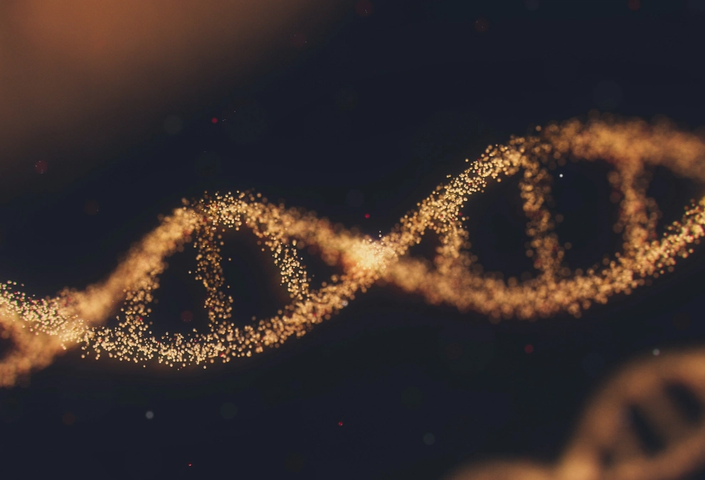EQT Foundation announces 2025 Women’s Health Grant recipients
EQT Foundation awards catalytic funding to pioneering researchers tackling overlooked conditions in women’s health
Selected projects span early cancer detection, endometriosis therapeutics, maternal health, fertility preservation, and cardiovascular diagnostics
Supporting high-risk, high-reward science to build the evidence base and unlock new frontiers in women’s health

EQT Foundation is proud to announce the recipients of this year’s Women’s Health Breakthrough Science Grants, a dedicated funding initiative to accelerate bold scientific solutions in historically overlooked areas of women’s health. The 11 selected projects span diagnostic innovation, therapeutic development, fertility preservation, maternal health, and cancer care, each chosen for their scientific potential and deep relevance to women’s lives.
Each project receives catalytic funding, hands-on support, and access to a network of scientists and partners working at the intersection of deep tech and impact.
Meet the 2025 Grantees:
Marc Soler, Loukia Petrou, Sylvain Ladame – miRFlow
A rapid, blood-based genomic test for early diagnosis and recurrence monitoring of gynaecological cancers. miRFlow enables precision diagnostics within minutes using standard lab equipment, starting with endometrial cancer and with ambitions far beyond.
Ernest Diez Benavente – DIVA: Diagnostic Indicators for coronary Vascular Angina in women
A first-of-its-kind blood test for INOCA (Ischemia with No Obstructive Coronary Arteries), a common but underdiagnosed cause of angina in women. The team aims to refine their prototype and take steps toward patenting and spin-out.
Christine P. Hendon – Hyperspectral imaging for endometrial cancer
In collaboration with Drs. June Hou and Xiaowei Chen, this project will prototype a transcervical hyperspectral endoscope and build a foundational image database, bringing us closer to non-invasive, early-stage screening for endometrial cancer.
Marlena Fejzo, Emily Branham – Risk stratification for Hyperemesis Gravidarum (HG)
This project integrates genetic and biomarker data to define molecular subtypes of HG and build predictive tools for risk and severity, advancing equitable early intervention and opening new therapeutic pathways in maternal care.
Emma Laporte – GynQura Therapeutics
Using patient-derived organoids from women with endometriosis, GynQura applies transcriptomics and AI-driven screening to validate novel drug targets. The aim: to build the first disease-modifying therapeutics for endometriosis.
Marie Meinsohn – Fertility preservation for paediatric cancer patients
Repurposing small molecules identified as AMHR2 agonists, this project seeks to protect ovarian function during chemotherapy in prepubertal girls, preventing early menopause and safeguarding future fertility.
Katelyn Rittenhouse – FAMLI: AI-powered ultrasound for low-resource settings
FAMLI combines handheld ultrasound devices with deep learning to enable non-specialists to deliver accurate pregnancy scans offline. The project aims to bring this tool to market, expanding essential care access globally.
Mariana Masteling – Peridot
A smart, low-cost device for identifying risks during labour and tracking postpartum recovery. With 3D-printed prototypes, biomimetic testing, and design-for-manufacture in place, the team is set to move toward market readiness.
Hans Gerstmans – Living diagnostics for BRCA1/2 breast cancer
A novel bacterial biosensing platform designed to detect and treat BRCA-mutant lesions from within the breast microbiome. The system activates therapeutic peptides only upon sensing cancer signals, enabling precise, long-term monitoring.
Raphael Ceccaldi – Targeted therapeutics for chemoresistant cancers
Focusing on aggressive breast and ovarian cancers, this team is developing a new class of small molecules to overcome resistance to platinum and PARP inhibitors, offering hope for improved outcomes in high-mortality cancer subtypes.
Martin Widschwendter – The Resolve Study: Diagnosing Womb Cancer
Building on the WID-qEC test’s success in identifying endometrial cancer, this study will focus on validation in Black women and in self-sampling options, alongside novel spatial transcriptomics to understand disease progression at the molecular level.
Contact
EQT Foundation
press@eqtfoundation.com
Tel: +46 73 465 5001
About EQT Foundation
EQT Foundation is a philanthropic organisation and long-term shareholder of the global investment organization EQT, founded by partners at EQT. The Foundation supports scientists and entrepreneurs bringing breakthrough solutions from lab to market, combining EQT’s expertise with catalytic investments and grants. With a focus on supporting scientific progress in underfunded areas of climate and health, the Foundation provides a learning platform for EQT employees to develop and work collaboratively across the globe, while engaging in philanthropy and making a positive impact.
More info: eqtfoundation.com
Follow EQT Foundation on LinkedIn